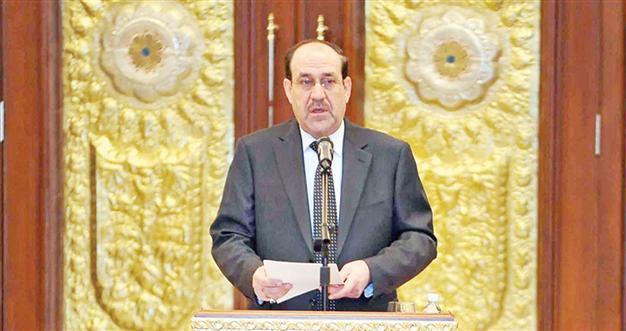Baghdad, KRG agree to withdraw soldiers from disputed area
BAGHDAD

Iraqi Prime Minister Nouri al-Maliki and the KRG government agree to call back troops from disputed areas.
Iraq’s government and the Kurdistan Regional Government (KRG) agreed Dec. 13 to defuse a tense standoff between their troops by gradually withdrawing them from disputed territories along their internal border.A statement from Iraq’s president, Jalal Talabani, who has mediated in past political disputes, said both regions would withdraw troops once local police took over security in disputed areas with help from local organizations representing ethnic groups. Under the plan, local residents would oversee their own security.
The deal appears to firm up a preliminary agreement announced by Iraqi Prime Minister Nouri al-Maliki last week. Talabani gave no timetable for the deal to be implemented.
Tensions between Baghdad and Arbil spiked following a decision by al-Maliki to form a new military command to oversee security forces bordering the Kurdish region in north. The KRG says the move was unconstitutional.
‘Local police in control’
“Security in these areas will be controlled and run locally by people there as well as local police. After the formation of these local groups, troops will be withdrawn,” al-Maliki’s media advisor Ali al-Moussawi said.
The troop standoff underscored the depth of tensions between Baghdad and Arbil over the control of the country’s oil wealth and contested land in the areas where both claim historical rights.
The central government in Baghdad and the KRG, embroiled in a dispute over oil and land, both dispatched troops last month in the second military build-up to threaten the country’s fragile unity since U.S. troops left a year ago.
On Dec. 6, Talabani said that the country faces dangers that may cause fatal results and that it is on the edge of a civil war. “These developments threaten the serenity and stability in the country.”
In November, Kurdish forces, the Iraqi army and police forces all sent troops and armored vehicles to reinforce positions around towns like the sensitive, ethnically mixed city of Kirkuk, which sits above some of the world’s largest oil reserves.
Tensions spiraled into troop build-ups when Iraqi soldiers tried to search the office of a Kurdish political party in Tuz Khurmato, 170 kilometers north of the capital, triggering a clash with Peshmarga forces in which a passerby was killed. The Iraqi army and the KRG troops have previously come close to confrontation only to pull back at the last moment.
Their clash is raising questions about Baghdad’s federal unity with the KRG.
















